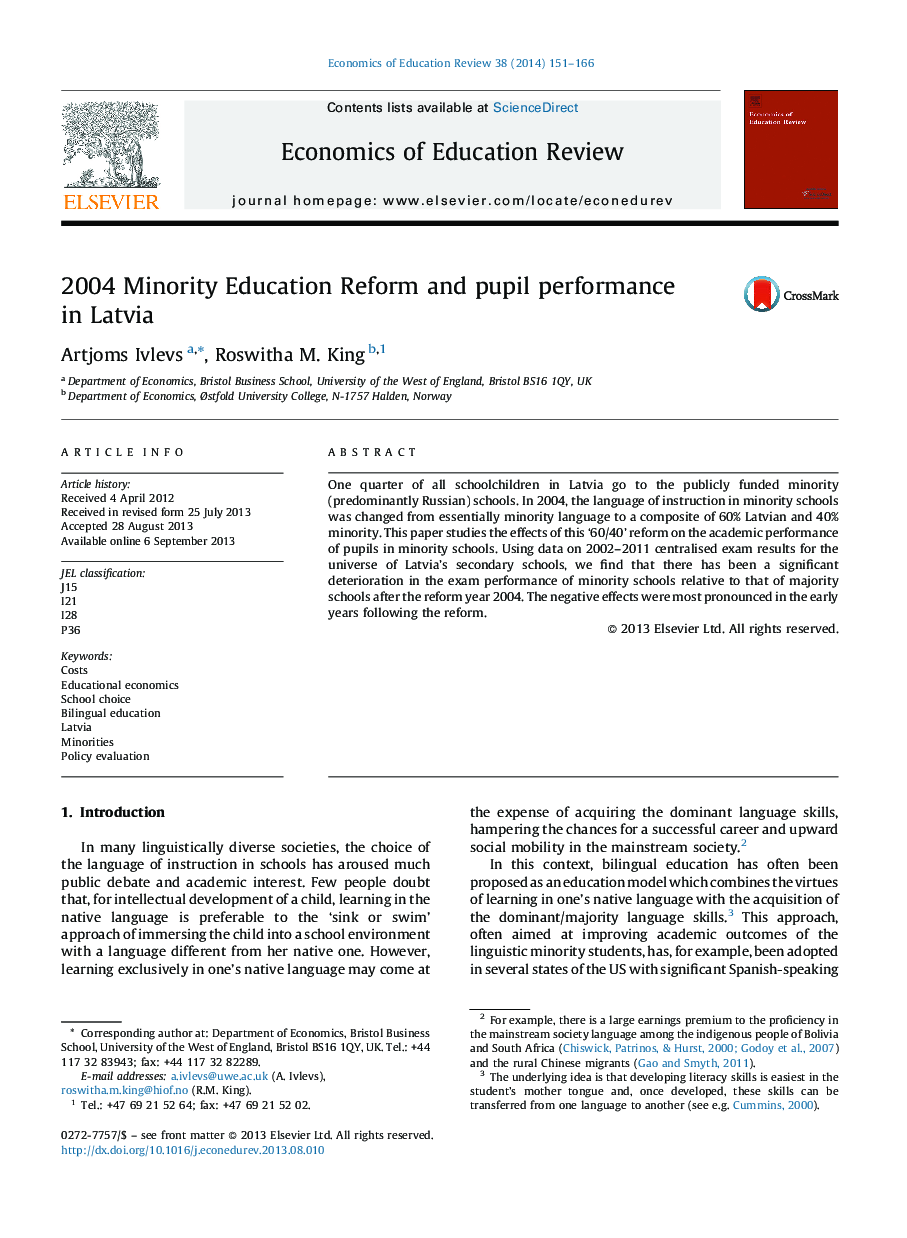| Article ID | Journal | Published Year | Pages | File Type |
|---|---|---|---|---|
| 354381 | Economics of Education Review | 2014 | 16 Pages |
•One quarter of all schoolchildren in Latvia go to the publicly funded minority (Russian) schools.•In 2004, native language instruction in minority schools was reduced from 100% to 40% (60% now delivered in Latvian).•We study the effects of the 60/40 law on the exam performance of secondary school graduates.•We find that the minority-relative-to-majority exam performance deteriorated after the law was implemented.•The negative effects were most pronounced in the early years following the reform.
One quarter of all schoolchildren in Latvia go to the publicly funded minority (predominantly Russian) schools. In 2004, the language of instruction in minority schools was changed from essentially minority language to a composite of 60% Latvian and 40% minority. This paper studies the effects of this ‘60/40’ reform on the academic performance of pupils in minority schools. Using data on 2002–2011 centralised exam results for the universe of Latvia's secondary schools, we find that there has been a significant deterioration in the exam performance of minority schools relative to that of majority schools after the reform year 2004. The negative effects were most pronounced in the early years following the reform.
